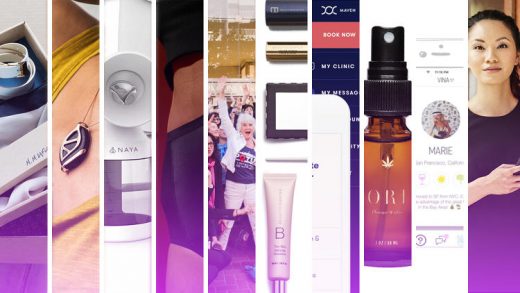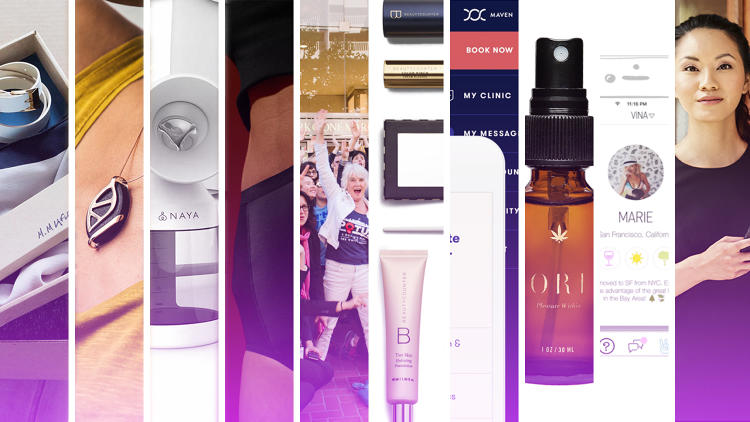The Top 10 Innovations That Made Women’s Lives Better In 2016
Technology designed for women exploded in 2016, with new products hitting the market ranging from wearable trackers for expectant mothers to networking apps to help female professionals get ahead. “The online consumer market of women is a new phenomenon” in part because investors are waking up to the opportunity, says Anu Duggal, founding partner of the Female Founders Fund, a firm that invests in women-led startups. “The purchasing power of women is massive and becoming clearer.”
Many of the female founders that made our list struggled for years to raise capital, but were able to convince investors in their vision through persistence and creativity (and of course, a solid business pitch). Miki Agrawal from Thinx, a period underwear maker, tells us she requested that one of her male investors wear a maxi pad during an entire meeting to get him to empathize with what women experience. Others like Morena Simatic, cofounder of wearables startup Bellabeat, had little trouble raising financing for a product designed specifically for women rather than a pink version of an existing product.
Five years ago, Harvard Business Review conducted a landmark survey of professional women and found that most felt vastly underserved in the marketplace compared to men. That’s starting to change. “Women were a neglected category, until recently,” says Simatic.
To compile this list, we asked a range of investors and entrepreneurs and solicited feedback from dozens of women. Here are their picks, in no particular order:
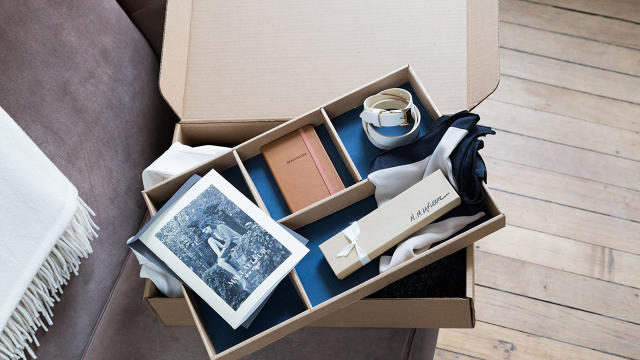
1. Fashion: MM.LaFleur
Honorable Mention: Rent the Runway Unlimited, Third Love
For recognizing that you have #BetterThingsToDo than shop for work clothes
One of our most popular fashion stories this year was about MM.Lafleur, a startup specifically designed for women who hate to shop. Sarah Lafleur, cofounder and CEO, had the idea for the company in her early twenties when she was a management consultant and needed to build a wardrobe of work outfits. Not only was it hard to find simple, well-made, work-appropriate clothing, the entire shopping process was a bore and ate into the little free time she had.
When she launched MM.Lafleur in 2013, she created the “Bento Box” system, where a woman can explain her preferences, size, and body type, and receive a box full of pieces chosen by a stylist. She can pay for the items she wants to keep, return the rest, then continue shopping online, or request another box. The idea is that women with full lives have #BetterThingsToDo than rifle through racks of dresses. Unlike subscription services like Stitchfix or La Tote, women can request boxes only when they need them, and, since MM.Lafleur only delivers products they make, they can ensure the quality is high.
Besides the innovative retail model, the clothes themselves are an important addition to the market. Miyako Nakamura, the other cofounder and creative director, designs simple work clothes that every professional woman needs—shift dresses, pencil skirts, blazers, silk tops. The clothes have a minimalistic aesthetic, clean lines, and are meant to look good on a range of body types. Many are made to be machine washable, because who has time to go to the dry cleaners every week? Stay tuned in 2017 for a new collection of shoes and bags, as well as plus sizes.
Among other innovative fashion brands over the last year, Rent the Runway launched a subscription service that allows you to wear an unlimited number of dresses for $139. Third Love has also emerged as a key lingerie brand that uses technology to assess a woman’s bra size accurately without requiring to get them fitted in a store.
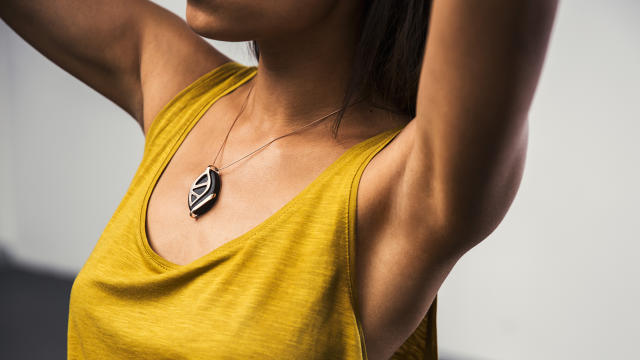
2. Wearables: Bellabeat
For making smart jewelry that goes with everything you wear
While fitness trackers are handy, most aren’t something you’d want to wear all day. Many are made of rubber or plastic to be sweat-resistant. The more fashionable ones often make too much of a statement to be worn all the time. But Bellabeat is a bio-tracker that is carefully designed to be worn all the time. It is a pendant in the shape of a leaf and made of a lightweight material that looks like stone, in a muted palette of gray and metal. It can be worn as a bracelet, a necklace, and a clip. It is sturdy and water-resistant, but it looks like a piece of everyday jewelry. It’s also small and unobtrusive enough that a woman can easily clip it to her bra, if she wants it out of sight, or to pajamas or underwear to track her sleep.
The technology behind the device is equally impressive. The Bellabeat tracks not only steps and sleep, but also a woman’s period, and it weaves all of the information together to predict how stressed she might be at any given time. If it determines you slept poorly and it is the day before your period is about to start, it might predict you have a 65% chance of being stressed, allowing you to mentally adjust, get some exercise, and preempt your own irritability. The app also comes with a series of meditation exercises so if you don’t have time to step out for some fresh air, you can do breathing exercises for a few minutes to reclaim your calm.
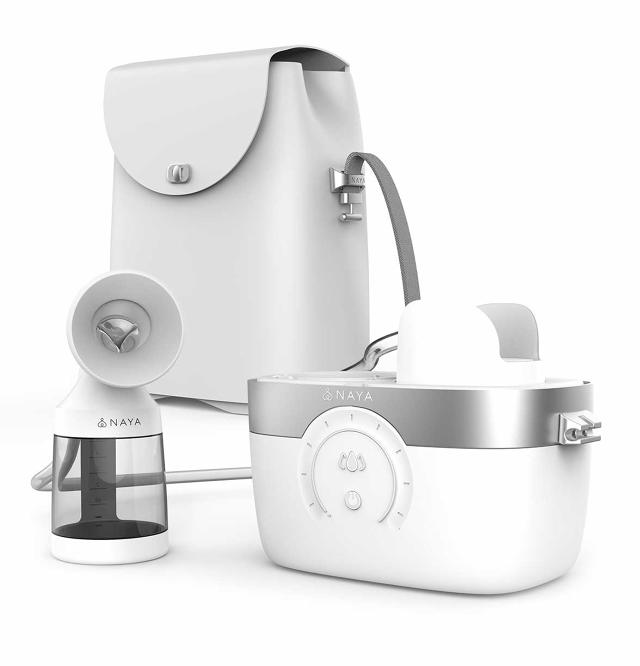
3. Technology: Naya Breast Pump
For creating a beautiful machine that doesn’t make new moms feel like cows
Breastfeeding can be an intimate form of bonding with your newborn. But using a breast pump is an unpleasant necessity for new moms who can’t always be with their babies. There has been little innovation in the technology in decades. Most pumps are clunky machines that suck milk from a woman’s breasts with vacuum pressure, much in the same way that cows are milked. They are noisy, heavy, and require many parts that need to be washed after every use.
Naya is a startup that has been working on new pump technology for the last two years. Their device is smaller and more portable than the average breast pump, quiet, and looks like it was made by Apple. It has clean lines and simple colors, like white and silver. The $1,000 device only begins shipping this month, so technology hasn’t been heavily tested or reviewed, but the founders explain that rather than using vacuum technology to suck out the milk, they have used a water-based technology that expresses milk from the breast. The device also massages the breast to help stimulate milk extraction, making it more effective than competing pumps.
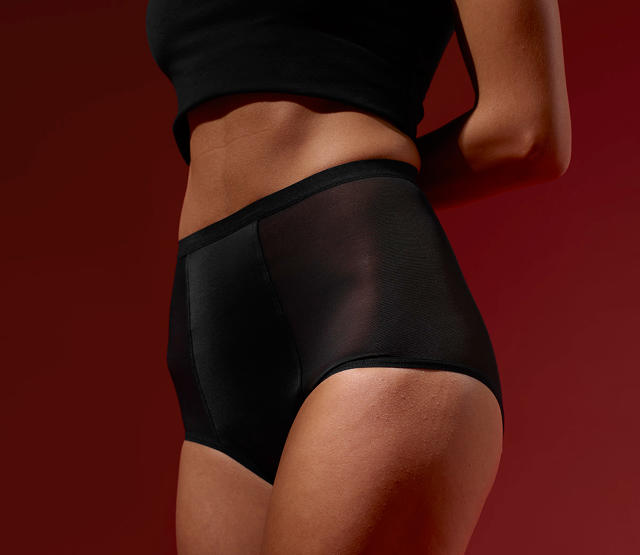
4. Period Tech: Thinx
Honorable mention: Knixwear, Clue
For taking some of the hassle and embarrassment out of menstruation products
For centuries, periods have been a source of shame and anxiety. As Thinx founder Agrawal is fond of saying, the very word “taboo” comes from a Polynesian word that happens to refer to menstruation. But in 2016, with women shattering glass ceilings across industries and running for the highest office in the land, it seems ludicrous that something as common and natural as a period continues to make women cringe.
Agrawal wanted to tackle the shame of periods head on. Her first line of attack was to create beautiful high-tech underwear that makes periods less of a hassle by preventing leaks with an absorbent, antimicrobial layer of fabric. After all, a big part of the embarrassment of menstruating is unsightly brownish blood stains on your pants or skirts. The garments feel as comfortable as regular underwear, come in a wide range of silhouettes (including a boy short designed for trans men), and have pretty details like lace.
But Thinx is committed to broader cultural change. It wants to change the conversation about periods, to tackle the taboo head-on and redefine it as something that is beautiful. Its advertising campaigns feature artistic images women in elegant poses and fruit that evokes a woman’s anatomy. In 2017, the company will release other clothing items that feature its proprietary fabric technology as well as a reusable silicone applicator for its own organic cotton tampons.
As close runners-up, underwear brand Knix Wear has developed a line of intimates that prevent leaks during periods with an in-built panty liner, but have used their technology to create knickers that are perfect for sport as well as a brand-new bra that provides lift without wires. Period app Clue has established itself as an important tool for 5 million women from more than 190 countries who want to keep on top of their menstrual cycles and fertility.
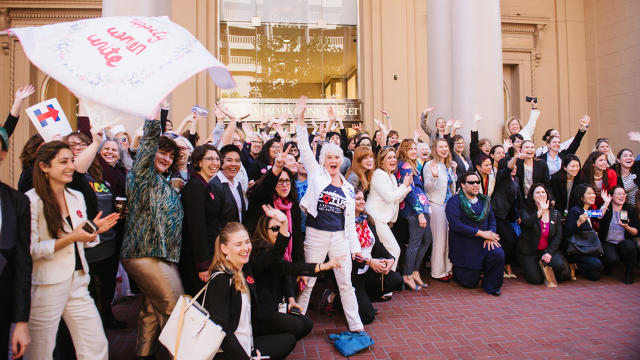
5. Online Communities: Pantsuit Nation
For creating a safe and welcoming space for political discourse and action
On November 8, millions of women across the nation went to the polls to cast their vote for the first female candidate at the top of the presidential ballot. There was a festive mood in the streets, thanks in part to many women wearing pantsuits, Hillary Clinton’s outfit of choice throughout her career. On social media, women posted pictures of themselves with the hashtag #PantsuitNation.
Pantsuit Nation began as a grassroots movement on Facebook. Libby Chamberlain, 33, created the Pantsuit Nation group three weeks before the election in an effort to express support—and collection donations—for Clinton. Clinton herself knew about the group. The day before the election, she passed on a message to the more than 2.5 million people in the group. “For some of you, it’s been difficult to feel like you could wear your support on your sleeve,” she wrote. “That’s why this community has been such a special place.”
Later, during her concession speech—a heartbreaking moment for many in the group—Clinton once again referred to #PantsuitNation. “And to the millions of volunteers, community leaders, activists, and union organizers who knocked on doors, talked to their neighbors, posted on Facebook—even in secret private Facebook sites,” she said. “I want everybody coming out from behind that and make sure your voices are heard going forward.”
Now, the Facebook group has morphed into a place to support one another in the wake of Clinton’s loss, as well as share ideas for activism. Elsewhere online #PantsuitNation has evolved into a rallying cry to push forward with the effort to ensure that a woman does, one day, break the highest glass ceiling there is.
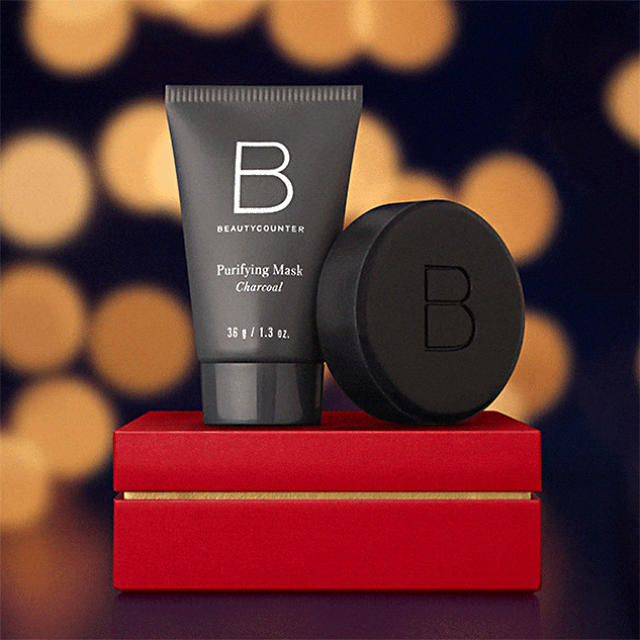
6. Beauty: Beautycounter
Honorable mention: Glossier, Ever
For fighting for safer beauty products, both in the lab and on Capitol Hill
While the United States has only banned 11 chemicals in personal care products, the European Union has banned more than 1,300 products and has restricted the level of more than 250 others. Beautycounter has been working to change that. The company has created its own list of chemicals that it will never use in its products. But this is a tall order. Its scientists need to work hard to find ways to use safe ingredients to make products that are as effective as anything else on the market. This year, it launched a mascara, which was particularly challenging to make without harsh chemicals known to cause harm.
This summer, Beautycounter brought a hundred of its representatives to Capitol Hill to lobby for the government to better regulate beauty products. It partnered with Target to broaden its customer base. It also acquired Nude, an all-natural beauty brand founded in the U.K. by Bono and his wife, Ali Hewson.
Glossier, a brand that emerged from the popular blog Into the Gloss, has been an important addition to the beauty landscape, by creating an unfussy range of products that makes getting ready in the morning quicker and easier. Ever, the skin care brand launched by Stella & Dot, has developed an all-natural line that uses an ingredients extracted from the magnolia plant in its range of anti-aging, brightening, and smoothing products.
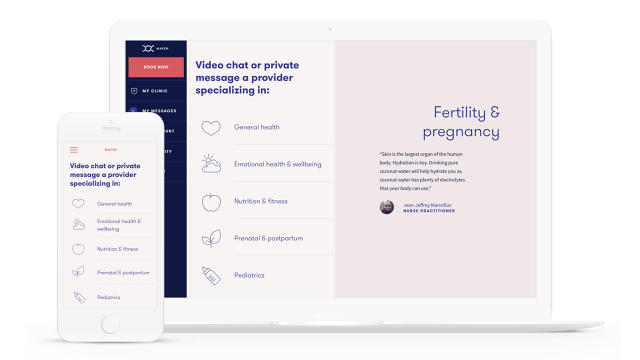
7. Medical care: Maven Clinic
Honorable mention: Wildflower Health
For connecting women with the care they need, when they need it
For many women, a family doctor simply isn’t equipped to handle questions specific to women’s health. Some women will see their gynecologist, but that’s not always appropriate for issues related to hormones and nutrition, for instance. That’s where Maven Clinic, a telehealth company for women founded by former journalist Katherine Ryder, comes in. The company works with hundreds of providers that sit inside and outside of the traditional medical system, including lactation consultants, midwives, family doctors, obstetricians, and physical therapists—and all of them were vetted for their ability to serve female patients.
Ryder, who recently had her first child, started the company after seeing a huge gap in the market for a service that specifically catered to pregnant women and new mothers. Maven’s maternity service is available 24/7 for those who have niggling questions about their or their newborn’s health. The company also rolled out a specialty service for women on college campuses, which helps students access birth control and mental health support, among other services. Ryder’s mission? “To help more women have access to a health provider they can talk to comfortably and easily, so no person goes without care.”
Wildflower Health, a San Francisco-based startup, helps pregnant woman and their families manage all that paperwork, including insurance benefits, and schedule doctor visits. The company was founded in 2012 by Leah Sparks, who struggled to deal with her health plan benefits while expecting her first child.
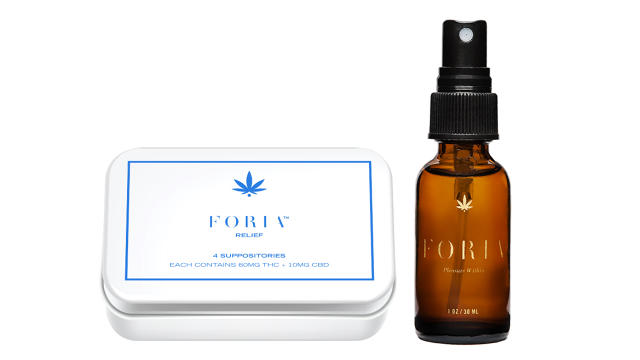
8. Sex and sexual health: Foria
Honorable mention: Make Love Not Porn, Nuelle
For reimagining the future of sex
Two words: Vaginal cannabis. Many of the women we spoke to raved about Foria Relief, a cocoa butter-based cannabis for the vagina that is designed to help with menstrual cramps and other sexual health issues. That accompanies Foria Pleasure, a product that aims to increase sexual pleasure through a lubricant spray. As one happy customer described the experience: “(It was) like my vagina was kicking back on the beach in Mexico, without a care in the world.” Sex and sexual health is a notoriously underfunded space, but Foria has garnered rave reviews from users and continues to sell well in Colorado and California.
Make Love Not Porn is the brainchild of Cindy Gallop, a former advertising consultant and sex educator, who believes that hardcore pornography has negatively impacted how younger generations of men think about sex. Gallop isn’t against porn; but she is critical of the unrealistic expectations that it leaves its viewers with. Gallop’s alternative—a website for real people to share their sexual adventures—describes itself as “pro-sex, pro-porn, and pro-knowing the difference.” Nuelle, which was founded by veteran medical device executive Karen Long, is developing a product called Fiera that is an intimacy enhancer for women struggling with sexual arousal.
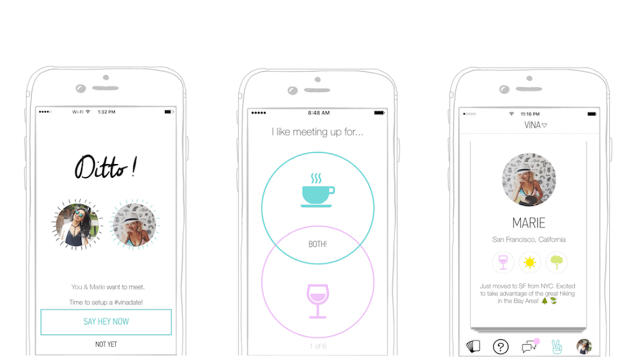
9. Friendship: Vina
Honorable mention: Bumble
For taking dating apps to the next level: friendship
When Olivia June Poole first moved to San Francisco, she had few friends in the city. So Poole signed up to OKCupid and started messaging women, not for the purposes of a forming a romantic relationship but a platonic one. That ultimately gave her the idea for Vina, an app that is essentially a Tinder for female friendships.
Women who sign up to the app answer quiz-style questions about their lifestyle and habits to ensure that the app can connect them with friends who share their interests. It’s ideal for those who recently relocated to a new place, or are too busy juggling professional and family lives and don’t have time to make friends. Vina seems to have hit on a bigger trend: Also this year, dating app Bumble announced a “BFF” feature for those who want to switch from searching for romantic partners to platonic, same-sex relationships.
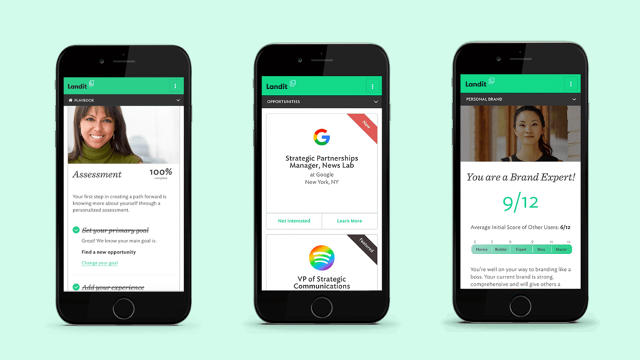
10. Professional networking: Landit
Honorable mention: Après
For helping women advance professionally, especially during times of transition
Landit, the startup that is making a name for itself as the “LinkedIn for women,” is designed to help women make big changes in their professional lives. Landit was founded by former health care investor Lisa Skeete Tatum, who had the lightbulb moment to start the company after hitting a crossroads in her own career. The site focuses on those transitional moments, such as when its users are feeling stuck in their current role or are newly reentering the workforce. In that sense, it’s similar to Après, a company that is designed for moms who want to reenter the workforce after taking a career break.
On Landit, women share information about their career experiences and skills in exchange for personalized job listings, as well as access to premium coaching services. The site also helps women develop a public-facing brand, if that’s important to their career growth. Landit will likely be available to anyone in the coming years, but Skeete Tatum told the Wall Street Journal that she’s opted to work exclusively with women for now as they “represent 51% of the workforce but are only in 19% of senior management roles. [Women] aren’t progressing through the ranks of these organizations as we should be.” Hear, hear.
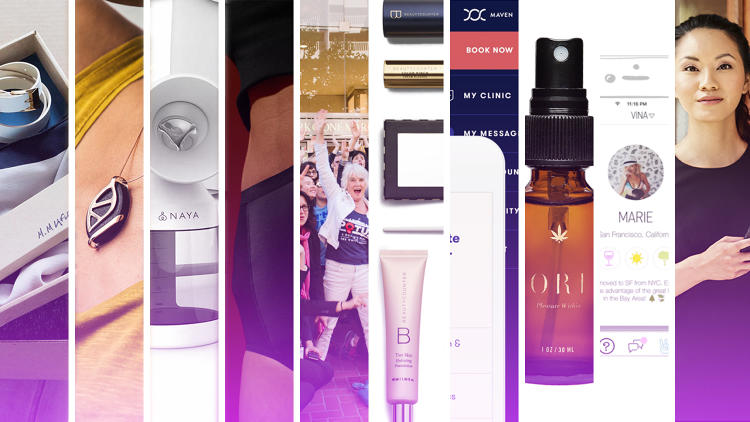
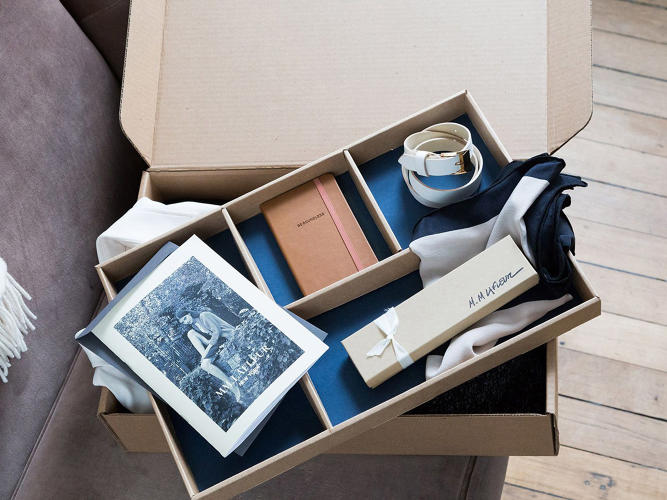
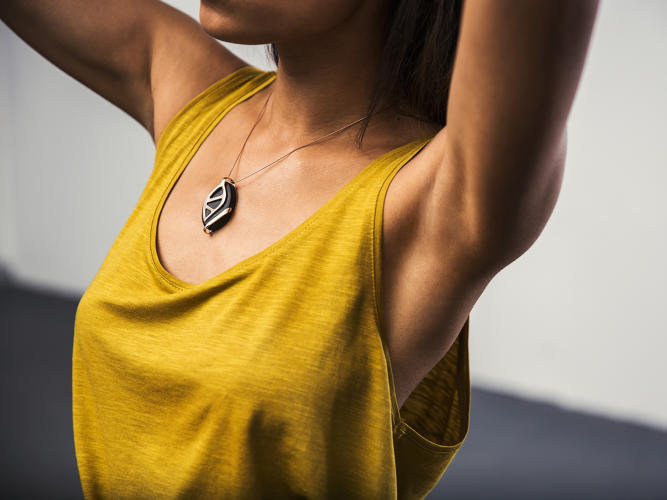
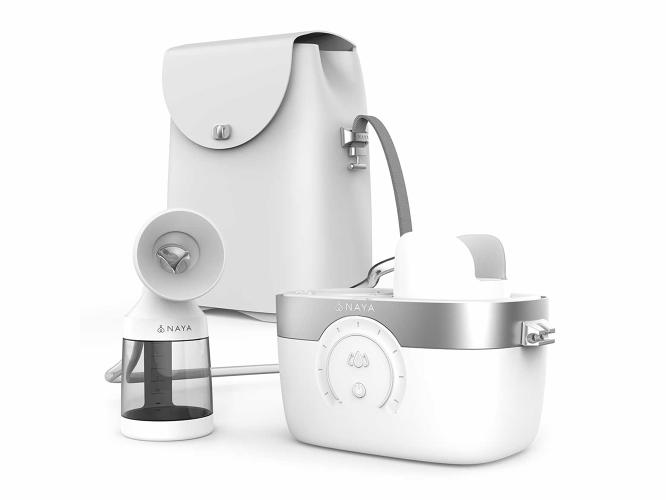
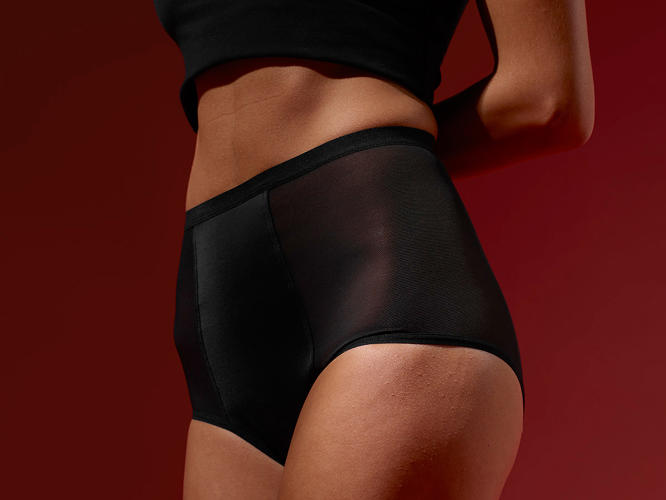
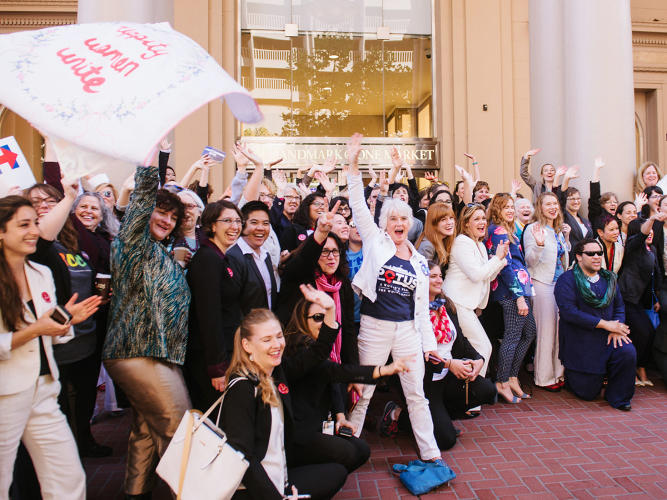
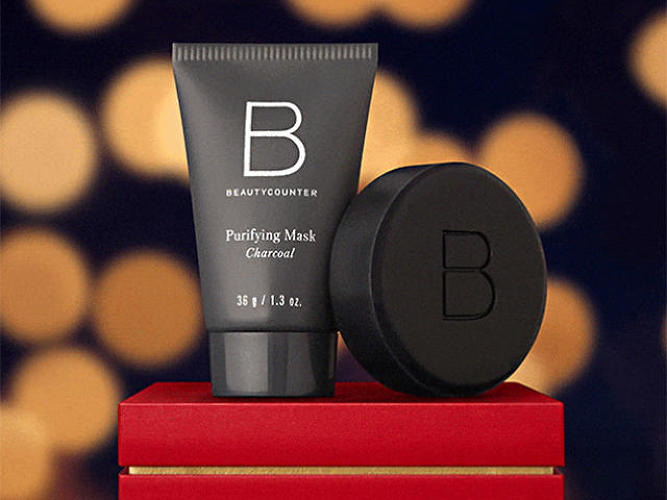
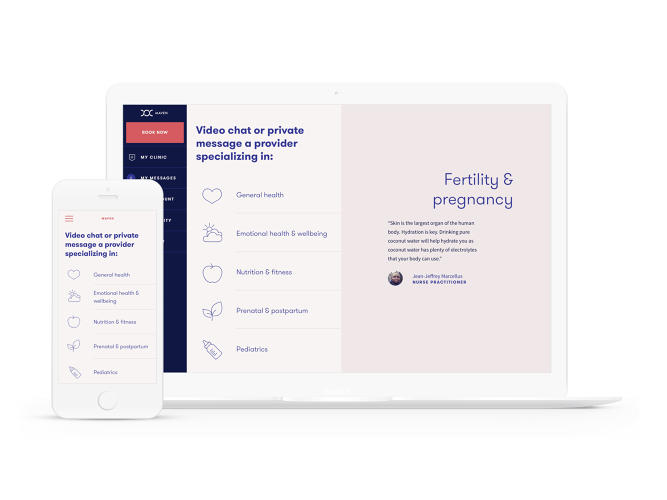
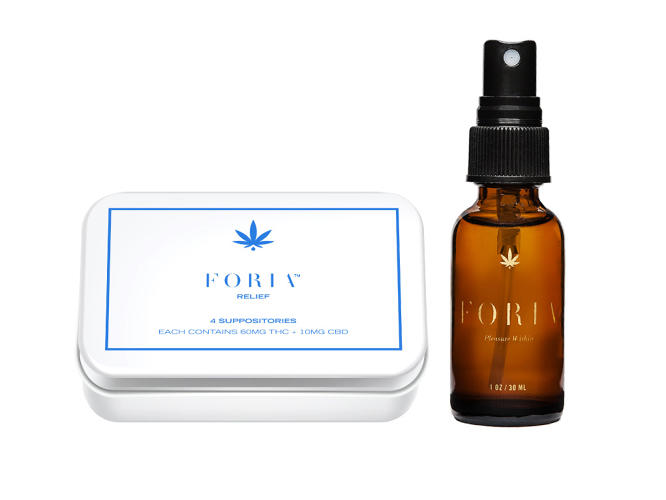
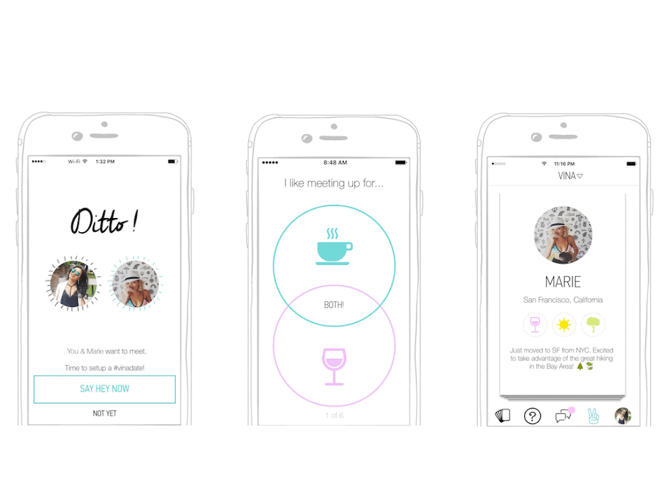
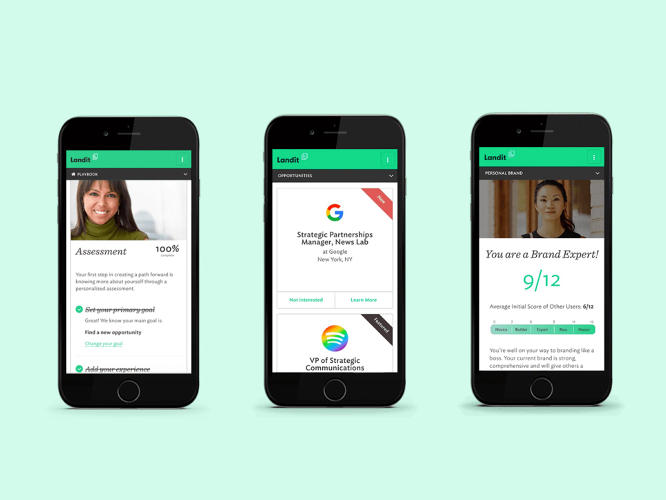
Fast Company , Read Full Story
(79)

